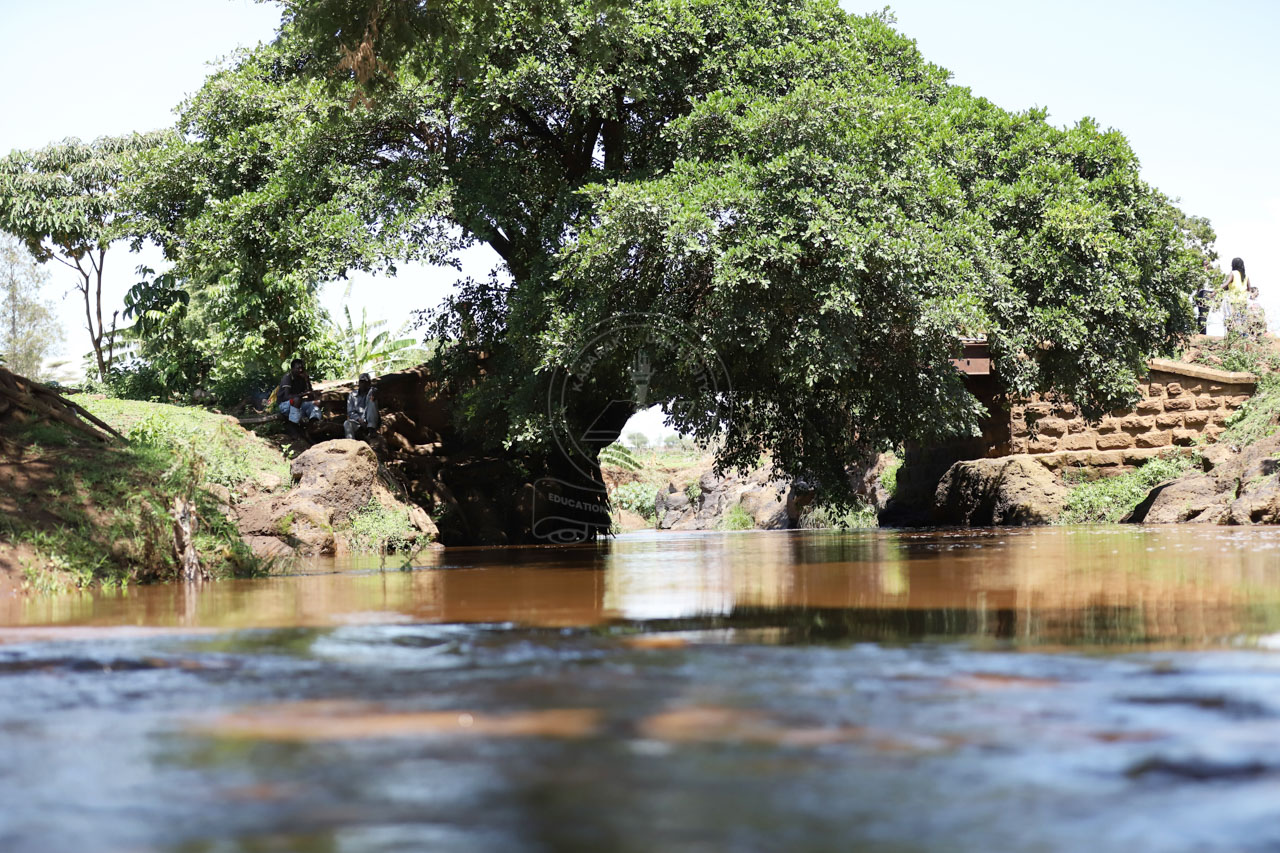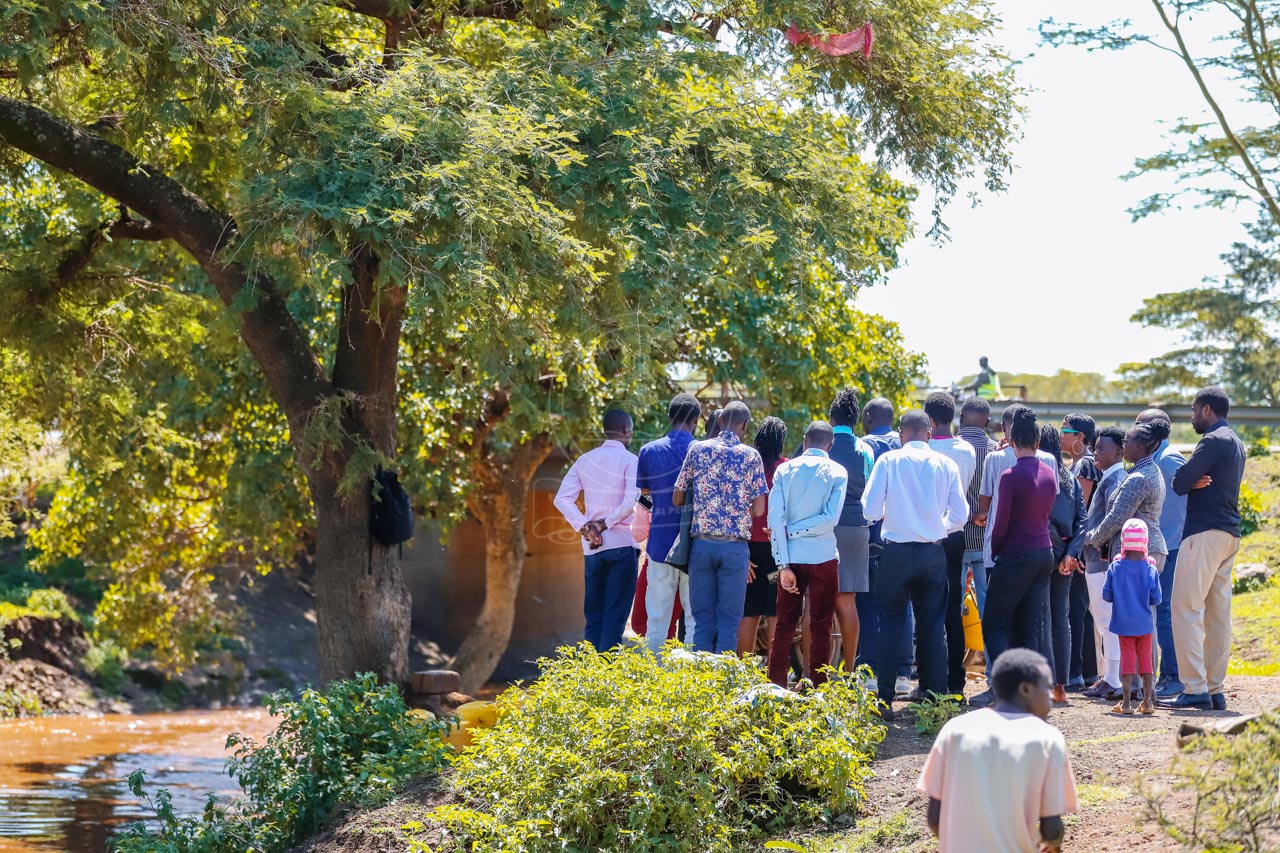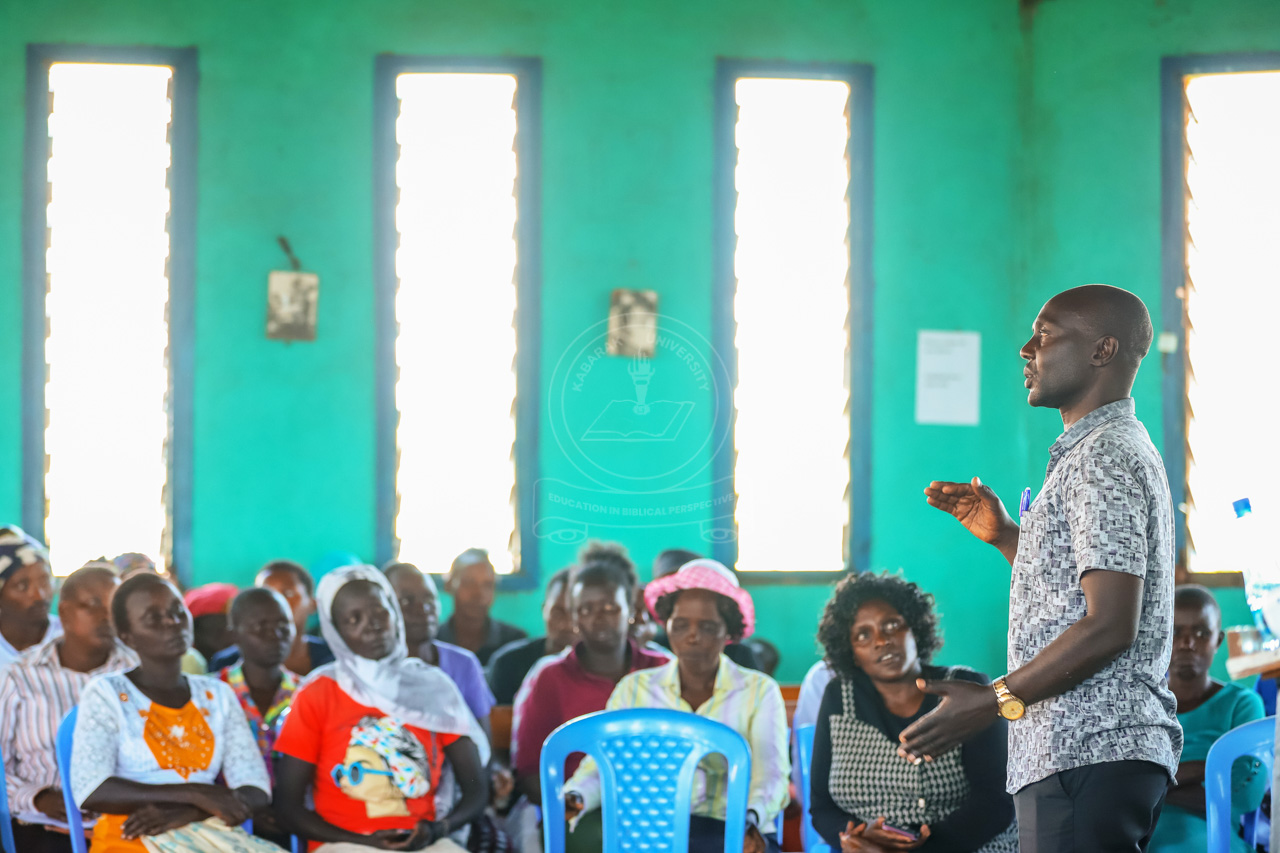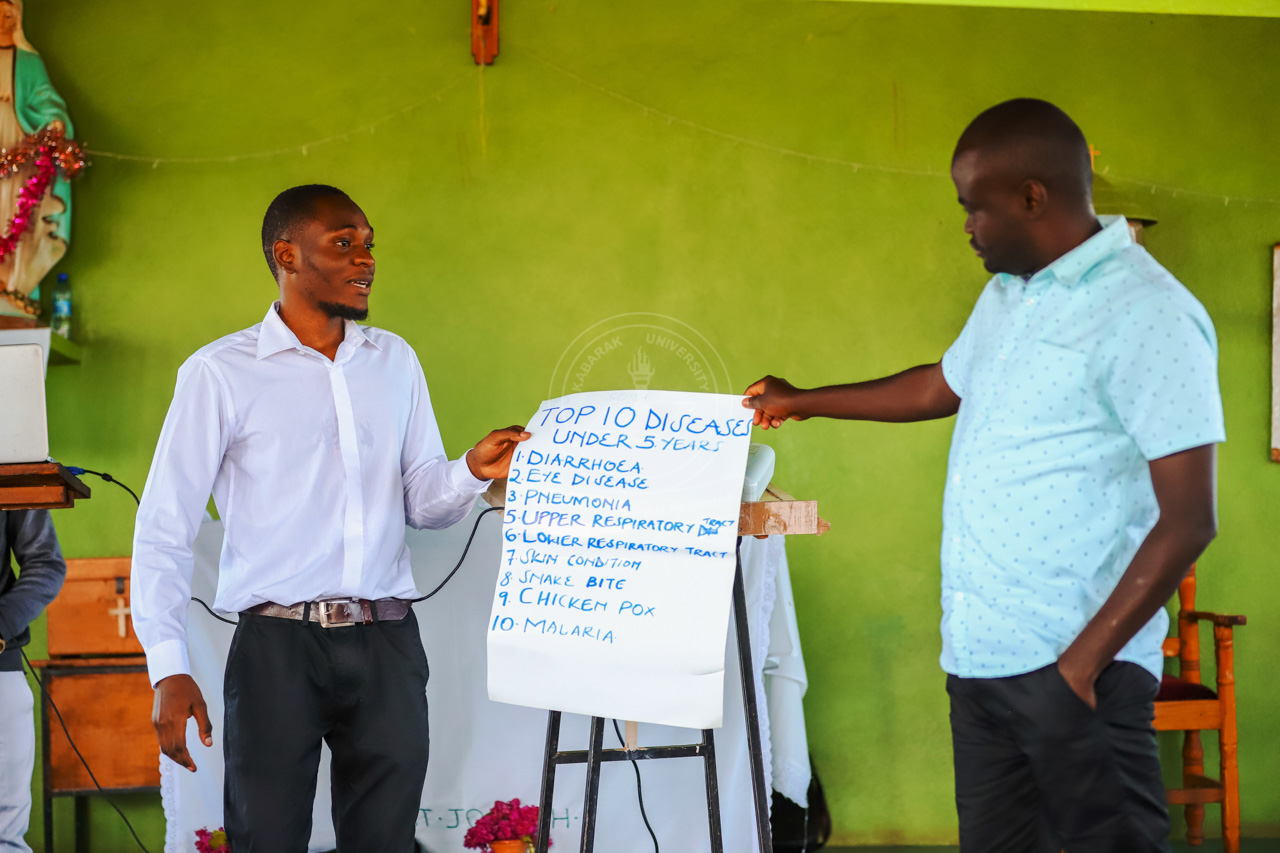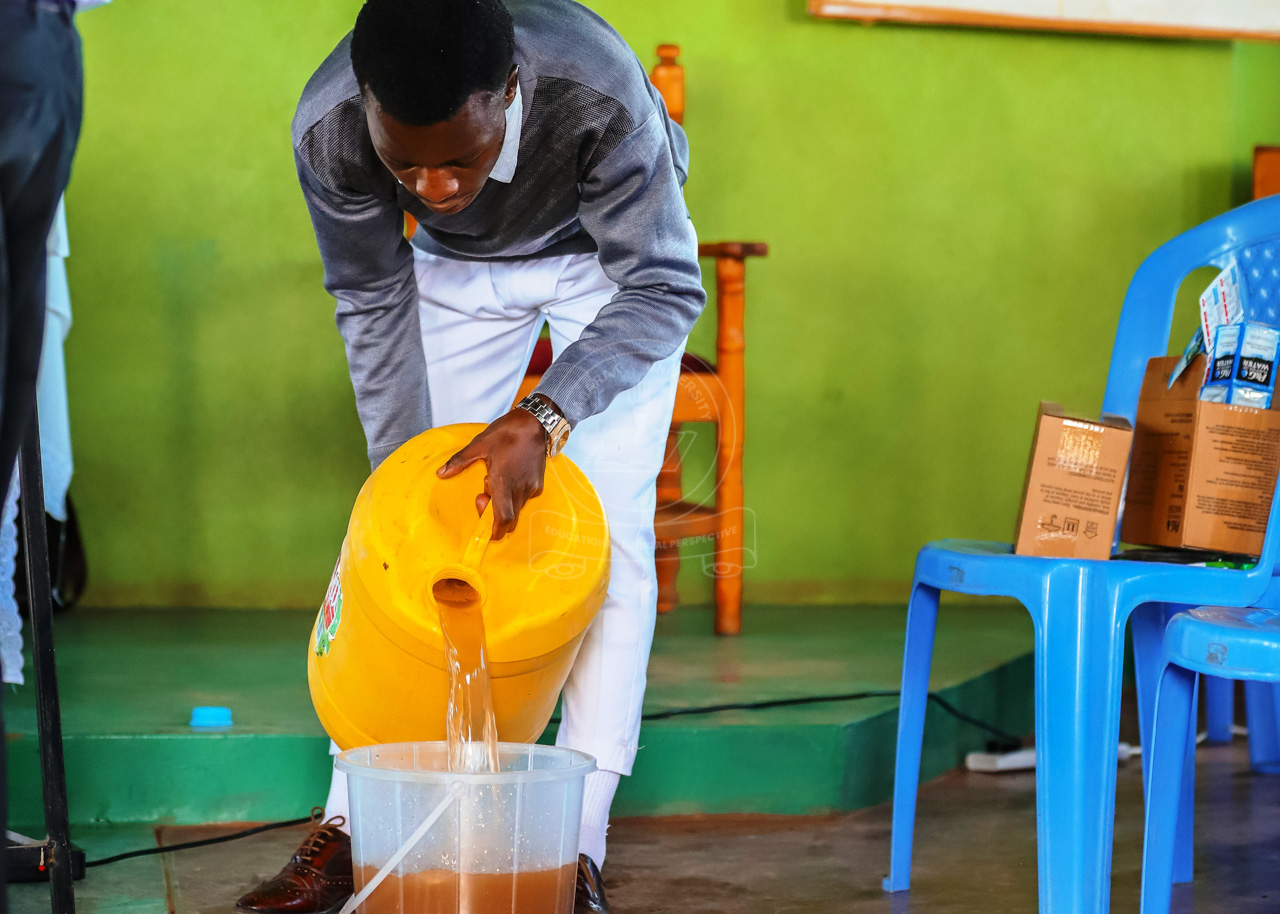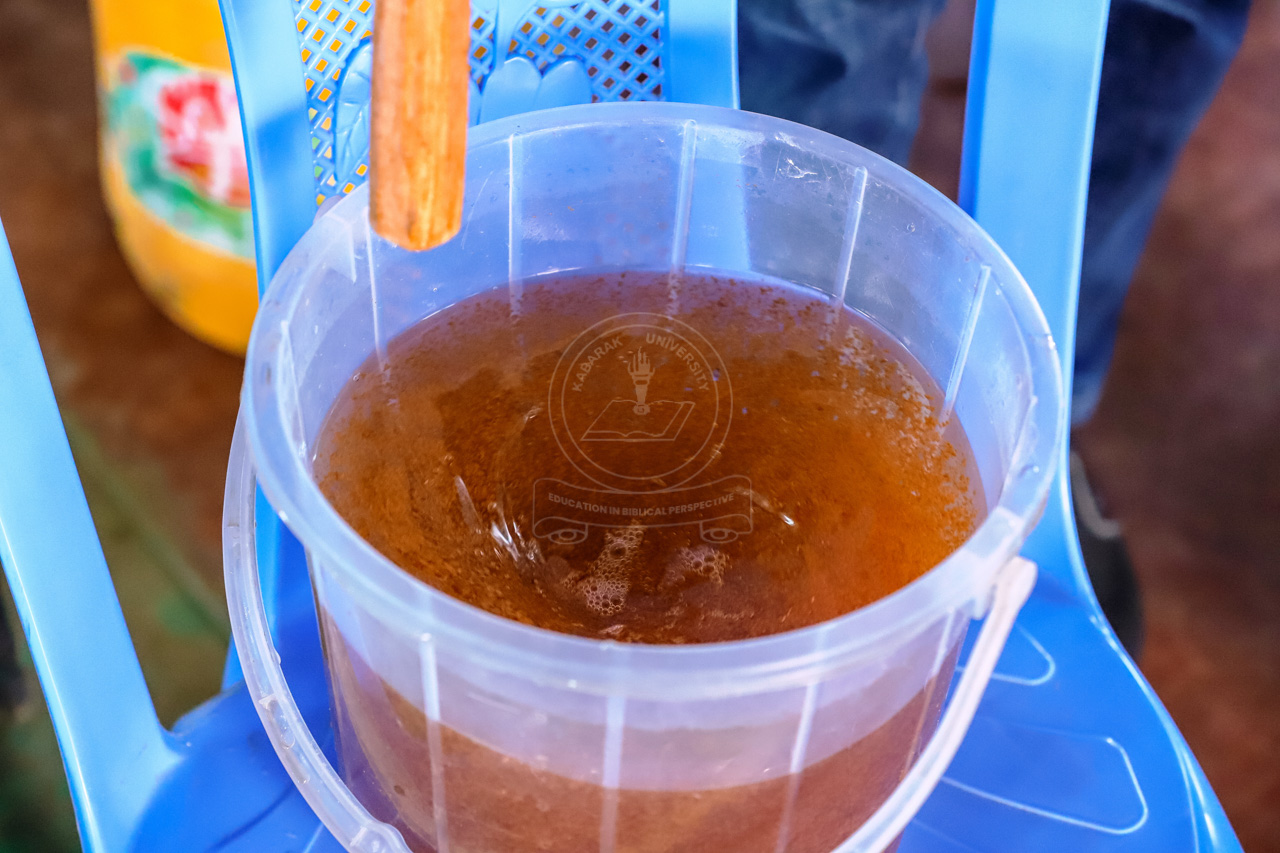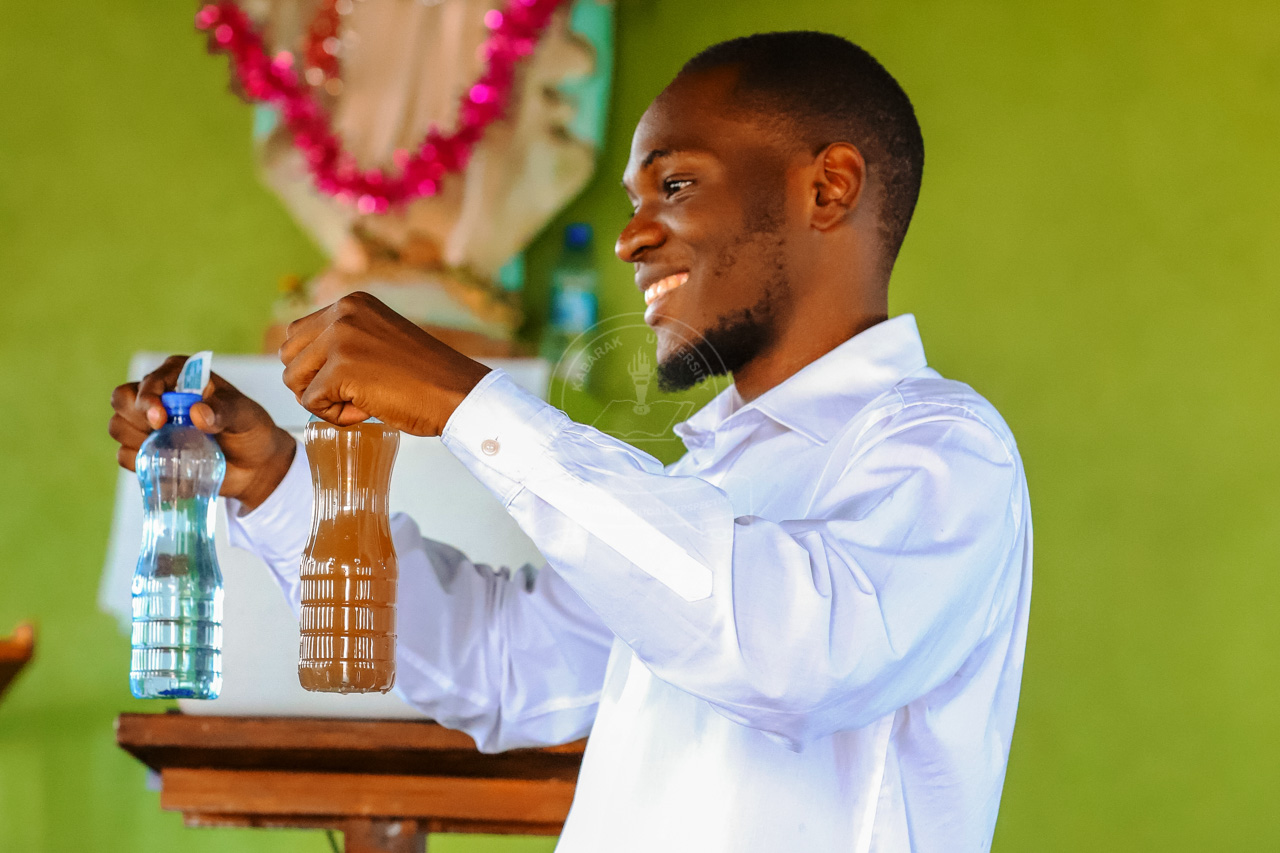In the Mogotio area, along the banks of the Molo River, a remarkable transformation is taking place. The people living in this region consider the presence of a brown-colored water river as a blessing, despite its apparent contamination. For years, they have been utilizing this water for various purposes such as washing cars, and motorcycles, cooking, and even drinking directly from it. Unfortunately, this has resulted in the proliferation of waterborne diseases and numerous cases of diarrhea in the local health facilities.
However, thanks to the unwavering dedication of the Kabarak University School of Medicine and Health Sciences Department of Public Health, a positive change is underway. This department has taken up the responsibility of educating the community about the dangers associated with consuming contaminated water. They have also proactively offered their assistance by teaching the residents safe water practices, including boiling and treating the water with chlorine. Moreover, the department has generously donated water disinfectants, providing the community with the means to transform the brown-colored water into the clear and odorless water they can now appreciate and consume safely.
The presence of a brown-colored river may seem paradoxical, but for the people of Mogotio, it has become a way of life. However, this water poses a significant threat to their health and well-being. With the Sustainable Development Goal on Clean Water and Sanitation calling for universal access to safe drinking water, the Kabarak University Department of Public Health recognized the urgency of the situation. They embraced this challenge as an opportunity to bring about positive change and improve the lives of those affected.
The first step taken by the Department of Public Health was to raise awareness among the community members. Through workshops, seminars, and interactive sessions, they educated the residents about the risks associated with consuming contaminated water. They highlighted the detrimental effects of waterborne diseases, emphasizing the need for clean and safe water to prevent illness and improve overall health.
Empowering the community with knowledge was just the beginning. The department realized that providing practical solutions was crucial for long-term change. They taught the residents about simple yet effective water treatment methods, such as boiling and chlorination. By boiling the water, harmful microorganisms can be destroyed, ensuring that it is safe for consumption. Additionally, the Department of Public Health distributed water disinfectants to the community, enabling them to convert the brown-colored water into clear, odorless, and drinkable water.
The efforts of the Kabarak University Department of Public Health have had a profound impact on the Mogotio community. Through their educational initiatives, they have empowered individuals to take charge of their own health and well-being. The once-prevalent cases of waterborne diseases, particularly diarrhea, have significantly decreased. Residents have experienced improved overall health, as well as a reduction in healthcare costs associated with treating water-related illnesses.
The transformation of the brown-colored river into clean and safe water will have an immeasurable impact on the community's morale and quality of life. Residents will no longer have to worry about falling ill or visiting healthcare facilities for preventable diseases. The provision of clean water has restored hope, dignity, and a sense of normalcy to the people of Mogotio. Children can focus on their education, adults can engage in productive activities, and the community as a whole can thrive without the burden of constant illness.
The Kabarak University School of Medicine and Health Sciences Department of Public Health has emerged as a beacon of hope for the Mogotio community. Their dedication to addressing the water crisis in the area, educating residents, and providing practical solutions has resulted in a tangible positive transformation. By turning the brown-colored river into clean and safe water, they have not only improved the health and well-being of the community but also restored hope and dignity. Their exemplary efforts serve as a testament to the impact that proactive community engagement and education can have in achieving Sustainable Development Goals, particularly in the realm of clean water and sanitation.


